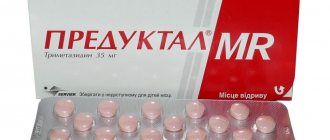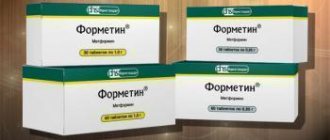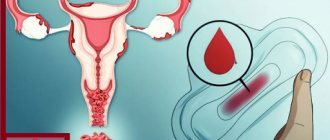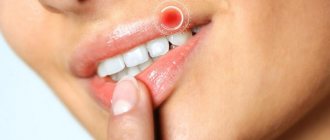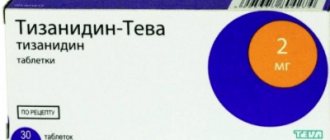The drug "Rispolept" is used to treat schizophrenia, bipolar affective disorder and irritability caused by autism. It is not recommended to use the drug to treat behavioral disorders in older people if these disorders are associated with dementia.
The drug is dispensed from pharmacies only with a doctor's prescription.
After receiving official approval for the sale of a drug designed to combat a specific pathology, new unforeseen effects of the drug are often discovered. Although this information is not indicated in the instructions for use of medications, in some cases doctors consider it necessary to prescribe this or that medicine for the treatment of other diseases not listed in the annotation. So, most often doctors prescribe “Rispolept” for autism; reviews from specialists, however, indicate that sometimes the drug is used for Tourette’s disease, a congenital pathology that combines vocalisms and multiple motor tics.
Pediatrics
Some questions about the effectiveness of the drug have not yet been studied. Thus, there is no reliable information about the effect of the analyzed medication on the condition of children diagnosed with schizophrenia, young people under the age of thirteen, as well as young patients under ten years old with a diagnosis of bipolar affective disorder. In addition, Rispolept is not prescribed to children with autism until they reach the age of five. Reviews from doctors about the non-systemic use of the drug are currently not systematized, and there are no data on the results of clinical studies. This means that the effectiveness and safety of the drug have not been studied within this age group.
Rispolept, 2 mg, film-coated tablets, 20 pcs.
Inside,
regardless of food intake.
Schizophrenia
Adults.
Rispolept® can be prescribed 1 or 2 times a day. The initial dose of Rispolept® is 2 mg/day. On the second day, the dose should be increased to 4 mg/day. From this point on, the dose can either be kept at the same level or individually adjusted if necessary. Typically the optimal dose is 4–6 mg/day. In some cases, a slower dose escalation and lower initial and maintenance doses may be justified.
Doses above 10 mg/day do not show greater efficacy than lower doses and may cause extrapyramidal symptoms. Due to the fact that the safety of doses above 16 mg/day has not been studied, doses above this level cannot be used.
Benzodiazepines can be added to Rispolept® therapy if additional sedation is required.
Elderly patients.
The recommended initial dose is 0.5 mg per dose 2 times a day. The dose can be individually increased by 0.5 mg 2 times a day to 1–2 mg 2 times a day. If it is necessary to use a dose of 0.5 mg, it is recommended to prescribe the drug Rispolept®, an oral solution.
Teenagers over 13 years old.
The recommended initial dose is 0.5 mg once daily in the morning or evening. If necessary, the dose can be increased after at least 24 hours by 0.5–1 mg per day to the recommended dose of 3 mg/day if well tolerated. The safety of doses above 6 mg/day has not been studied.
For patients who experience persistent drowsiness, it is recommended to take half the daily dose 2 times a day.
If it is necessary to use a dose of 0.5 mg, it is recommended to prescribe the drug Rispolept®, an oral solution.
There is no information on the use of the drug for the treatment of schizophrenia in children under 13 years of age.
Behavioral disorders in patients with dementia
The recommended initial dose is 0.25 mg per dose 2 times a day. If necessary, the dose can be increased individually by 0.25 mg 2 times a day, no more than every other day. For most patients, the optimal dose is 0.5 mg 2 times a day. However, some patients are advised to take 1 mg 2 times a day.
Once the optimal dose is reached, it may be recommended to take the drug once a day.
If it is necessary to use doses of 0.25 or 0.5 mg, it is recommended to prescribe the drug Rispolept®, an oral solution.
Bipolar disorders with mania
Adults.
The recommended initial dose of the drug is 2 or 3 mg/day at a time. If necessary, this dose can be increased at least after 24 hours by 1 mg/day. For most patients, the optimal dose is 1–6 mg/day.
Teenagers and children over 10 years old.
The recommended initial dose is 0.5 mg once daily in the morning or evening. If necessary, the dose can be increased after at least 24 hours by 0.5–1 mg/day to the recommended dose of 2.5 mg/day if well tolerated. For most patients, the optimal dose is 0.5–6 mg/day.
If it is necessary to use a dose of 0.5 mg, it is recommended to prescribe the drug Rispolept®, an oral solution.
The safety of doses above 6 mg/day has not been studied.
For patients who experience persistent drowsiness, it is recommended to take half the daily dose 2 times a day.
There is no information on the use of the drug for the treatment of bipolar disorders in children under 10 years of age.
Behavioral disorders
Patients weighing 50 kg or more.
The recommended initial dose of the drug is 0.5 mg once a day. If necessary, this dose can be increased by 0.5 mg/day no more than every other day. For most patients, the optimal dose is 1 mg/day. However, for some patients, 0.5 mg/day is preferable, while some require an increase in dose to 1.5 mg/day. If it is necessary to use a dose of 0.5 mg, it is recommended to prescribe the drug Rispolept®, an oral solution.
Patients weighing less than 50 kg.
The recommended initial dose of the drug is 0.25 mg once a day. If necessary, this dose can be increased by 0.25 mg/day no more than every other day. For most patients, the optimal dose is 0.5 mg/day. However, for some patients, 0.25 mg/day is preferable, while some require an increase in dose to 0.75 mg/day. If it is necessary to use doses of 0.25 or 0.5 mg, it is recommended to prescribe the drug Rispolept®, an oral solution.
Long-term use of the drug Rispolept® in adolescents should be carried out under the constant supervision of a physician.
Use in children under 5 years of age has not been studied.
Autism in children and adolescents
The dose of Rispolept® should be selected individually. The recommended initial dose of the drug is 0.25 mg/day for patients weighing less than 20 kg and 0.5 mg/day for patients weighing 20 kg or more. On the 4th day of administration, the dose can be increased by 0.25 mg/day for patients weighing less than 20 kg and by 0.5 mg/day per day for patients weighing 20 kg or more.
This dose should be used until approximately the 14th day of treatment, when it is necessary to evaluate the effectiveness. Further increase in dose is carried out only in case of lack of effectiveness. The dose can be increased at intervals of 2 weeks or more by 0.25 mg/day for patients weighing less than 20 kg and by 0.5 mg/day for patients weighing 20 kg or more.
In clinical studies, the maximum daily dose did not exceed 1.5 mg/day for patients weighing less than 20 kg and 2.5 mg/day for patients weighing 20 kg or more, and 3.5 mg/day for patients with weight body more than 45 kg.
Table
Doses of the drug Rispolept® in the treatment of autism in children (per day)
| Body weight, kg | Days 1–3, mg | Days 4–14+, mg | Increase the dose (if necessary) | Recommended dose, mg |
| Less than 20 | 0,25 | 0,5 | +0.25 mg after 2 weeks or more | 0,5–1,5 |
| 20 or more | 0,5 | 1 | +0.5 mg after 2 weeks or more | 1–2,5* |
* For patients weighing more than 45 kg, higher doses may be required, the maximum dose studied is 3.5 mg/day.
If it is necessary to use doses of 0.25 or 0.5 mg, it is recommended to prescribe the drug Rispolept®, an oral solution.
Rispolept® can be prescribed 1 or 2 times a day.
For patients who experience persistent drowsiness, it is recommended to take a daily dose 1 time before bedtime or 2 times a day.
If consistent efficacy is observed, the decision may be made to gradually reduce the dose to achieve an optimal balance of efficacy and safety.
Use in children under 5 years of age has not been studied.
Other patient groups
Patients with liver and kidney diseases.
Patients with kidney disease have a reduced ability to eliminate the active antipsychotic fraction compared to other patients. In patients with liver disease, there is an increased concentration of the free fraction of risperidone in the blood plasma.
The initial and maintenance dose, in accordance with the indications, should be reduced by 2 times; the dose increase in patients with liver and kidney diseases should be carried out more slowly.
If it is necessary to use doses of 0.25 or 0.5 mg, it is recommended to prescribe the drug Rispolept®, an oral solution.
Rispolept® should be prescribed with caution in this category of patients.
Elderly age
Although detailed information about the effect of the drug on the condition of elderly patients does not yet exist, Rispolept is often prescribed to representatives of the older generation. However, it should be taken into account that older people often experience health problems associated with age, such as diseases of the cardiovascular system, liver or kidneys. If the patient suffers from such ailments, it is necessary to modify the dose of the drug accordingly in order to ensure the safety of treatment of mental disorders. It is worth once again paying attention to the fact that doctors and patients leave quite negative reviews about attempts to treat behavior disorders caused by senile dementia with the medication we are considering. "Rispolept", as a rule, is not prescribed or used in these cases.
Rispolept instructions
Inside.
A. Schizophrenia
Adults and children over 15 years old
- 1 or 2 times a day.
Initial dose - 2 mg/day; on the second day the dose should be increased to 4 mg/day. From this point on, the dose is either kept at the same level or, if necessary, individually adjusted. Usually the optimal dose is 4-6 mg/day. In some cases, a slower dose escalation and lower initial and maintenance doses may be justified.
Doses higher than 10 mg/day are not more effective than lower doses and may cause extrapyramidal symptoms. Due to the fact that the safety of doses above 16 mg/day has not been studied, they cannot be used.
Benzodiazepines can be added to Rispolept therapy if additional sedation is required.
There is no information available for use in the treatment of schizophrenia in children under 15 years of age.
Elderly patients:
The recommended starting dose is 0.5 mg 2 times a day. The dosage can be individually increased by 0.5 mg 2 times a day to 1-2 mg 2 times a day.
Liver and kidney diseases:
The recommended starting dose is 0.5 mg per dose 2 times a day. This dose can be gradually increased to 1-2 mg 2 times a day.
Drug abuse or drug dependence:
The recommended dose of the drug is 2-4 mg/day.
B. Behavioral disorders in patients with dementia
The recommended starting dose is 0.25 mg 2 times a day. If necessary, the dosage can be increased individually by 0.25 mg 2 times a day, no more than every other day. For most patients, the optimal dose is 0.5 mg 2 times a day. However, some patients are advised to take a dose of 1 mg 2 times a day.
Once the optimal dose is reached, it may be recommended to take the drug once a day.
B. Bipolar disorders (with mania)
The recommended initial dose of the drug is 2 mg per day for 1 dose. If necessary, this dose can be increased by 2 mg per day, no more than every other day. For most patients, the optimal dose is 2-6 mg/day.
E. Behavioral disorders in patients with mental retardation or with dominant destructive tendencies in the clinical picture
Patients weighing 50 kg or more:
The recommended initial dose of the drug is 0.5 mg 1 time per day. If necessary, this dose can be increased by 0.5 mg per day, no more than every other day. For most patients, the optimal dose is 1 mg per day. However, for some patients, 0.5 mg per day is preferable, while some require an increase in dose to 1.5 mg per day.
Patients weighing less than 50 kg:
The recommended initial dose of the drug is 0.25 mg once a day. If necessary, this dose can be increased by 0.25 mg per day, no more than every other day. For most patients, the optimal dose is 0.5 mg per day. However, for some patients, 0.25 mg per day is preferable, while some require an increase in dose to 0.75 mg per day.
Long-term use of Rispolept in adolescents should be carried out under the constant supervision of a physician.
Use in children under 15 years of age is not recommended.
Interaction with other drugs
Although some medications should not be taken at the same time, if necessary, you can take several medications at once, even if there is a proven reaction between them. The latter option involves reducing the dosage of one of the medications or establishing a schedule for taking them. If you have been prescribed one of the drugs from the list below, be sure to tell your doctor. Please note: the proposed list includes only products with potentially intense effects and is not complete. Perhaps the doctor will decide to replace one of the drugs to avoid a reaction between the components. The list of medications that pose a potential health hazard when taken simultaneously with the drug “Rispolept” for autism (reviews from experts confirm this information) includes the following items:
- "Amifampridine."
- "Cisapride."
- "Levomethadil."
- "Mesoridazine."
- "Metoclopramide."
- "Pimozide".
- "Sparfloxacin".
- "Terfenadine."
- "Ciprasidone".
There is also a list of drugs that are not recommended for simultaneous use with the drug in question: Rispolept receives very inaccurate reviews, and information about the interaction of these medications does not provide a sufficiently clear picture. However, in some cases it is necessary to take both drugs - then the doctor reduces the dosage of one of them. Among these means:
- "Acarbose."
- "Aymalin."
- "Alogliptin".
- "Astemizole".
- "Bupropion."
- "Chlorpromazine."
- "Chlorpropamide."
- "Citalopram."
- "Crizotinib".
- Dabrafenib.
- "Doxepin."
- "Droperidol."
- "Erythromycin".
- "Fluconazole".
- "Fluoxetine."
- "Foscarnet".
- "Imipramine."
- "Insulin".
- "Ketoconazole".
- "Metronidazole".
- "Nafarelin."
- "Ondansetron".
- "Paroxetine."
- Pazopanib.
- "Pentamidine."
- "Propaphenone".
- "Triptorelin."
- Vandetanib.
- Vemurafenib.
- "Vinflunine."
When taking Rispolept and any of the medications included in the list below, pharmacists say, the risk of unwanted side effects increases. However, sometimes a combination of these drugs is the most effective treatment. Be careful, as not all medications on the list have adequate reviews. Rispolept is therefore often prescribed simultaneously with one of the following medications:
- "Carbamazepine".
- "Cimetidine"
- "Itraconazole"
- "Methadone."
- "Phenobarbital".
- "Ranitidine".
- "Ritonavir."
- Valproic acid.
Using the medicine in solution form
Eating and drinking drinks does not affect the effect of the drug "Rispolept". The reviews for the solution and tablets are approximately the same, regardless of the routine, time and content of meals.
When using the solution:
- Determine the dose using the measuring device included in the medication package.
- Drink the solution immediately or mix it into a drink. Water, coffee, orange juice, and low-fat milk are suitable for this purpose. Do not mix Coca-Cola or tea with the drug "Rispolept" for autism: reviews on thematic medical sites indicate a high probability of unwanted consequences. Drink the entire mixture.
- Rinse the measuring device (cup or spoon) and wipe dry. Carefully close the medicine bottle.
The use of lozenges
When Rispolept is prescribed to children with autism, reviews from mothers suggest: it is better to purchase lozenges than an oral solution. If your choice falls on this form of medication, read the proposed instructions for use:
- Do not open the package until you take the drug. To take one tablet, separate it along the perforation lines from the blister.
- Fold the corner of the package as shown on the box with the drug. Carefully peel off the foil layer. If a doctor has prescribed Rispolept for children, reviews on the forums will tell you: under no circumstances should you allow a child to press the tablet through the foil, as such handling of the drug can damage the integrity of the dose.
- Remove the tablet from the package with dry hands and immediately place it on your tongue. A dose of medicine removed from the package cannot be stored.
- Experts often prescribe Rispolept to children. Reviews indicate that the tablets dissolve almost instantly in the mouth.
- You can swallow a dose of the drug with water or any other liquid from the approved list (see above). Do not crush or chew the tablet.
Rispolept tablets po 2mg bl N10x2 Janssen Pharmaceuticals N.V.
Schizophrenia. Adults. Rispolept can be prescribed once or twice a day. The initial dose of Rispolept is 2 mg per day. On the second day, the dose can be increased to 4 mg per day. From this point on, the dose can either be kept at the same level or individually adjusted if necessary. Usually the optimal dose is 4-6 mg per day. In some cases, a slower dose escalation and lower initial and maintenance doses may be justified. Doses higher than 10 mg per day have not been shown to be more effective than lower doses and may cause extrapyramidal symptoms. Due to the fact that the safety of doses above 16 mg per day has not been studied, doses above this level are not recommended. Elderly patients. An initial dose of 0.5 mg twice daily is recommended. The dosage can be individually increased by 0.5 mg twice daily to 1-2 mg twice daily. Children from 13 years old. The recommended initial dose is 0.5 mg once daily in the morning or evening. If necessary, the dosage can be increased after at least 24 hours by 0.5 - 1 mg per day to the recommended dose of 3 mg per day if well tolerated. Despite the effectiveness demonstrated in the treatment of schizophrenia in adolescents with doses of 1-6 mg per day, no additional effectiveness was observed at doses above 3 mg per day, and higher doses caused more side effects. Doses higher than 6 mg per day have not been studied. For patients who experience persistent drowsiness, it is recommended to take half the daily dose 2 times a day. Manic episodes associated with bipolar disorder. Adults. The recommended initial dose of the drug is 2 mg per day at a time. If necessary, this dose can be increased after at least 24 hours by 1 mg per day. For most patients, the optimal dose is 1-6 mg per day. Doses higher than 6 mg per day have not been studied in patients with manic episodes. As with any other symptomatic therapy, the advisability of continuing treatment with Rispolept should be regularly assessed and confirmed. Elderly patients. An initial dose of 0.5 mg twice daily is recommended. The dosage can be individually increased by 0.5 mg twice daily to 1-2 mg twice daily. Caution must be exercised due to limited experience with the drug in elderly patients. Children from 10 years old. The recommended initial dose is 0.5 mg once daily in the morning or evening. If necessary, the dosage can be increased after at least 24 hours by 0.5 - 1 mg per day to the recommended dose of 1-2.5 mg per day if well tolerated. Despite the effectiveness demonstrated in the treatment of manic episodes associated with bipolar disorder in children with doses of 0.5-6 mg per day, no additional effectiveness was observed at doses above 2.5 mg per day, and higher doses caused more side effects. Doses higher than 6 mg per day have not been studied. For patients who experience persistent drowsiness, it is recommended to take half the daily dose 2 times a day. Persistent aggression in patients with dementia due to Alzheimer's disease. A starting dose of 0.25 mg twice daily is recommended. If necessary, the dosage can be increased individually by 0.25 mg 2 times a day, no more than every other day. For most patients, the optimal dose is 0.5 mg twice daily. However, some patients are advised to take 1 mg 2 times a day. Rispolept should not be used for more than 6 weeks in patients with persistent aggression in patients with dementia due to Alzheimer's disease. During treatment, patients' condition should be assessed on a regular basis, as well as the need for continued therapy. Persistent aggression in the structure of conduct disorder. Children from 5 to 18 years old. Patients weighing 50 kg or more - the recommended initial dose of the drug is 0.5 mg once a day. If necessary, this dose can be increased by 0.5 mg per day, no more than every other day. For most patients, the optimal dose is 1 mg per day. However, for some patients, 0.5 mg per day is preferable, while some require an increase to 1.5 mg per day. Patients weighing less than 50 kg - the recommended initial dose of the drug is 0.25 mg once a day. If necessary, this dose can be increased by 0.25 mg per day, no more than every other day. For most patients, the optimal dose is 0.5 mg per day. However, for some patients, 0.25 mg per day is preferable, while some require an increase in dose to 0.75 mg per day. As with any symptomatic therapy, the appropriateness of continued treatment with Rispolep should be regularly assessed and confirmed. Use in children under 5 years of age is not recommended due to lack of data. Liver and kidney diseases. Patients with kidney disease have a reduced ability to eliminate the active antipsychotic fraction compared to other patients. In patients with liver disease, there is an increased concentration of the free fraction of risperidone in the blood plasma. The initial and maintenance dose, in accordance with the indications, should be reduced by 2 times; the dose increase in patients with liver and kidney diseases should be carried out more slowly. Rispolept should be prescribed with caution in this category of patients. Mode of application. Inside. Eating does not affect the absorption of the drug. If it is necessary to use doses less than 1.0 mg, it is recommended to use the drug Rispolept, an oral solution. It is recommended to discontinue taking the drug gradually. Acute withdrawal symptoms, including nausea, vomiting, sweating and insomnia, have been observed very rarely after abrupt cessation of high-dose antipsychotic medications. Transition from therapy with other antipsychotic drugs. When starting treatment with Rispolept, it is recommended to gradually discontinue previous therapy if clinically justified. Moreover, if patients are transferred from therapy with depot forms of antipsychotic drugs, then it is recommended to start therapy with Rispolept instead of the next scheduled injection. The need to continue current antiparkinsonian drug therapy should be periodically assessed.
Side effects
Along with the expected effects on the body, many medications have undesirable effects. The medicine "Rispolept" is no exception. Side effects, reviews of which are quite common, include the following conditions:
- anxiety;
- anxiety;
- aggressive behavior;
- visual impairment;
- disturbances in concentration;
- increased urine volume;
- muscle spasms in the face, neck and back;
- urinary disorders;
- strong nervous excitement;
- skin rash or itching;
- motor tics;
- stiffness or weakness in the arms or legs;
- sleep disorders;
- involuntary body movements.
If any of these side effects occur, seek immediate medical attention. More details about undesirable effects can be read in the document attached to the drug "Rispolept" (instructions for use). Reviews from doctors and patients, however, indicate a more frequent occurrence of minor side effects that do not require urgent medical attention. This:
- cough;
- constipation;
- diarrhea;
- dry mouth;
- headache;
- increased sleep duration;
- nausea;
- drowsiness;
- a sore throat;
- runny nose;
- menstrual irregularities;
- dandruff;
- darkening of the skin;
- lack of sexual desire;
- sneezing;
- abdominal pain;
- toothache;
- atypical discharge from the mammary glands;
- feeling tired or weak;
- weight gain or sudden weight loss.
Selective serotonin reuptake inhibitors (SSRIs)
Serotonin is a signaling substance (scientifically called a neurotransmitter). Brain cells exchange serotonin molecules to transmit information. In depression, there is an imbalance of serotonin.
Imagine that brain cells are throwing molecules around like balls. The point of contact between cell processes is called a synapse. When a cell receives a serotonin molecule, the signal is received, the cell no longer needs serotonin, and it gets rid of it. The removal of serotonin from the synapse is called reuptake. If this process is interfered with (inhibited), then there will be more serotonin in the synapse. This will strengthen or extend the signal. In some way that is not fully understood, this will alleviate depression by stabilizing your mood. This is exactly what this group of antidepressants do.
SSRIs are drugs containing the following active substances (the most popular trade names of drugs containing this active substance are indicated in brackets):
- fluoxetine (deprex, portal, prozac, profluzac, fluval)
- sertraline (Aleval, Asentra, Deprefolt, Zoloft, Serenata, Sirlift, Stimuloton, Thorin)
- paroxetine (adepress, actaparoxetine, paxil, plisil, rexetine, sirestill)
- citalopram (Oprah, Pram, Siozam, Tsipramil, Citol)
- escitalopram (lenuxin, miracitol, selectra, cipralex, esipi)
- fluvoxamine (fevarin)
- venlafaxine (Velaxin, Velafax, Newelong, Efevelon)
- duloxetine (Cymbalta)
Alcohol cannot be combined with selective serotonin reuptake inhibitors because alcohol itself prolongs (extends) the action of intracerebral serotonin to a certain point, and is also an inducer of dopamine synthesis (like MAO inhibitors (monoamine oxidase inhibitors), also antidepressants and also incompatible with alcohol) . Therefore, on the one hand, when alcohol is taken simultaneously with antidepressants, competition for the substrate may occur, and this will increase not so much the direct, but rather the side (undesirable) effects of antidepressants.
These side effects, indicated in the instructions for use, can also develop with standard administration and dosage of antidepressants: due to the polymorphism of serotonin receptors, effects opposite to those expected can develop (depending on which receptors the antidepressant acts on - those it targets, or the opposite Both are serotonin). With the simultaneous effect of alcohol, the probability and degree of stimulation of different types of serotonin receptors turns out to be almost unpredictable.
Therefore, from a cocktail of alcohol with an antidepressant you can easily get hallucinations, sexual disorders, and depressive psychosis. For example, this is what happened to a reader of our site:
I’ve been taking Paxil for 10 years now, and I used to drink alcohol, but this time I overdid it due to stress. The next day I was vomiting, I was a coward, I felt like a drug addict. At night an ambulance called and they dropped something on me. The pulse was 120. A user of the website pokhover.rf
But potentially much more dangerous is the possibility of severe autonomic disorders: pressure surges, blood clotting disorders, secretory disorders, arrhythmia.
English scientist Andrew Herxheimer and New Zealand scientist David B. Menkes published an article in the Pharmaceutical Journal noting that many patients do not take seriously the warning that alcohol should not be combined with selective serotonin reuptake inhibitors.
Manufacturers of antidepressants explicitly do not recommend doing this on the instructions that are included in the boxes with medicines, but they rely on the results of studies on healthy volunteers in whose bodies their medicine does not interact with alcohol in any way.
It turns out that these warnings had not previously been confirmed by scientific research, and therefore did not convince either doctors or patients. Herxheimer and Menses described specific manifestations of pathological intoxication syndrome, which often causes serious consequences in patients taking SSRIs or similar antidepressants.


